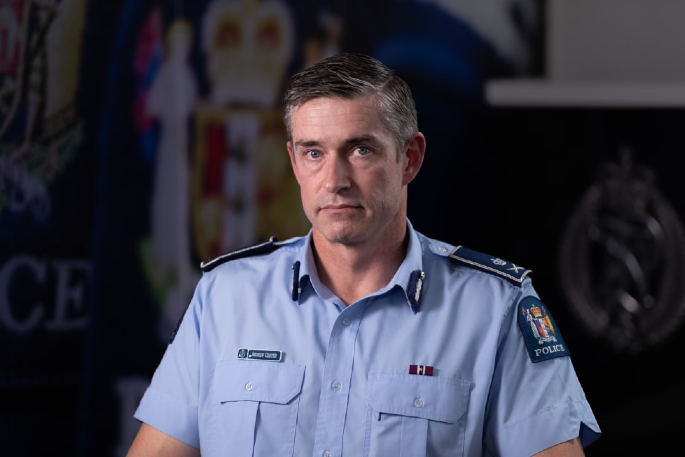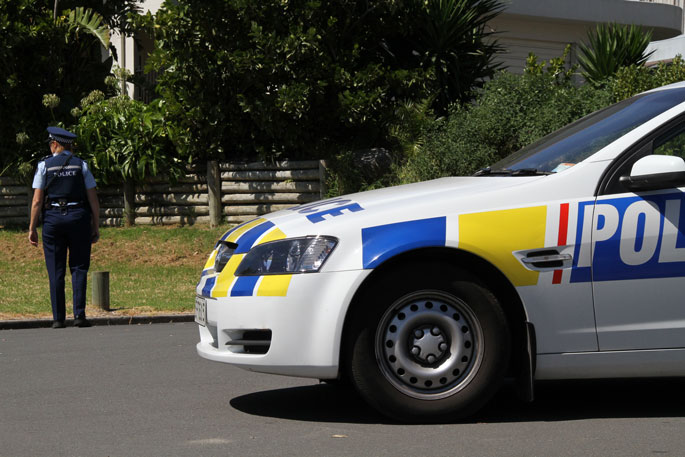Police accepted some but not all the findings from an independent inquiry that found systemic problems and some illegal practices in how they take, store and handle peoples' images and information.
The investigation by the Privacy Commission and the Independent Police Conduct Authority found police were routinely and illegally taking photos and film of children and adults.
It also highlighted systemic problems with how police were capturing, storing and using private biometric information about people.
Read the full joint inquiry report here
The Joint Inquiry was initiated in March 2020 after Wairarapa whānau complained that police officers were photographing their rangatahi/youth in circumstances they felt was unfair or unjustified.
Subsequent media coverage led more people to report similar experiences, says a statement released by the IPCA.
"It became apparent that the issues these incidents raised had much broader application, and the Inquiry considered wider concerns about the way in which photographs or video recordings of members of the public were being taken, used, and retained in a variety of policing contexts.
"The Joint Inquiry makes it clear that, while police will sometimes have lawful and valid reasons to take photographs, this must be done in a privacy-compliant way.
"Digital photography can be a powerful policing tool, but as sensitive biometric personal information it must also be collected, used, stored and retained lawfully and safely."
In relation to the three complaints which were upheld, the Joint Inquiry has found that police were not justified in photographing the rangatahi, as the photographs were not necessary for a lawful policing purpose, says thee IPCA.
"We also found that, in these incidents, police had not properly sought consent from the rangatahi or their parents or caregivers before taking the photographs, and had not adequately explained why the photographs were being taken and what they would be used for."
During the broader investigation, the Joint Inquiry also found that:
• Police had developed a practice of regularly taking duplicate sets of 'voluntary” fingerprints and photographs from youths who ended up in police custody for suspected offending and retaining them for a longer period than permitted by the regime for compulsory prints and photographs under the Policing Act. The Joint Inquiry found that this practice was unlawful.
• There was a widespread belief amongst officers that there is no difference between photographing adults or youths for intelligence-gathering or investigative purposes, notwithstanding the fact that children and young people have special protections in the NZ criminal justice system, set out in both the United Nations Convention on the Rights of the Child (UNCROC) and the Oranga Tamariki Act. The IPCA found police practice and procedure to be, in many cases, inconsistent with those protections.
• Many officers mistakenly see consent as allowing them to collect personal information, including photographs and prints, in situations where the law does not otherwise allow them to do so. We found that a person's consent cannot make the otherwise unlawful or unnecessary collection of personal information lawful or compliant with the Privacy Act.
These problems have arisen because police as an organisation have not developed appropriate training, guidance or policies to enable officers to collect and retain personal information, including photographs, effectively and lawfully.
The Joint Inquiry recommends that police policy, procedures and training be revised and enhanced to reflect that:
• photographs are sensitive biometric information;
• when police are photographing adults and youth, they are doing so either under a specific statutory authorisation, or in compliance with the information privacy principles; and
• photographs should be taken in accordance with youth specific protections.
To assist police, the Joint Inquiry Report has considered the variety of contexts in which officers may see photographs of members of the public as beneficial for policing.
The report outlines whether photographs in each context are likely to have a lawful purpose, and if so, recommends appropriate thresholds for taking photographs that should be incorporated into Police policy.
In December 2021 the Deputy Privacy Commissioner issued a compliance notice to Police to stop collecting duplicate photographs and biometric prints from young people and delete unlawfully collected material. Police have been reporting regularly to OPC on progress with the compliance notice.
The Joint Inquiry team is heartened by the undertakings made by police to prioritise the implementation of the recommendations of both the Joint Inquiry and compliance notice.
Police will consult quarterly with the Office of the Privacy Commissioner on progress with this work and publish progress updates on both the compliance notice and Joint Inquiry recommendations on their website.
 Police Commissioner Andrew Coster. Photo: RNZ/Cole Eastham-Farrelly.
Police Commissioner Andrew Coster. Photo: RNZ/Cole Eastham-Farrelly.
In response to the report, Police Commissioner Andrew Coster says they accepted the findings about photos taken of rangatahi.
But he says while police acknowledged the wider findings from the inquiry, they presented a challenge to police carrying out their duties.
"We will take some time to consider the broader findings, which have implications for police's ability to effectively investigate and prevent crime," says Coster.
"As an organisation we are committed to ensuring New Zealanders can have trust and confidence in the way personal information is obtained and managed.
"However, some of the findings and recommendations present significant challenges to our staff being able to carry out their duties successfully."
Coster admitted the way that information about people was stored did need work, but says taking photos was necessary for police work.
"Balancing investigation requirements with the public's right to privacy" was a key concern for police staff, he says.
"Intelligence gathering - including the taking of photographs and voluntary fingerprints - enables police to carry out its core functions as set out by the Policing Act 2008, particularly the prevention and investigation of crime.
"We accept that aspects of our intelligence gathering policy require refinement, particularly in relation to retention and disposal of information that is no longer needed for the purposes of investigation."
However, he was confident systems already used for fingerprint data storage were robust.
Some changes already under way
Coster says after a compliance notice was issued to police about officers taking photos of young people, in December 2021 by the Office of the Privacy Commissioner, police had begun to make changes.
He also says a training programme had been started, aimed "to increase awareness of the need to appropriately manage images once they have served their investigative or prevention purpose".
- Additional reporting by RNZ/Hamish Cardwell.



0 comments
Leave a Comment
You must be logged in to make a comment.